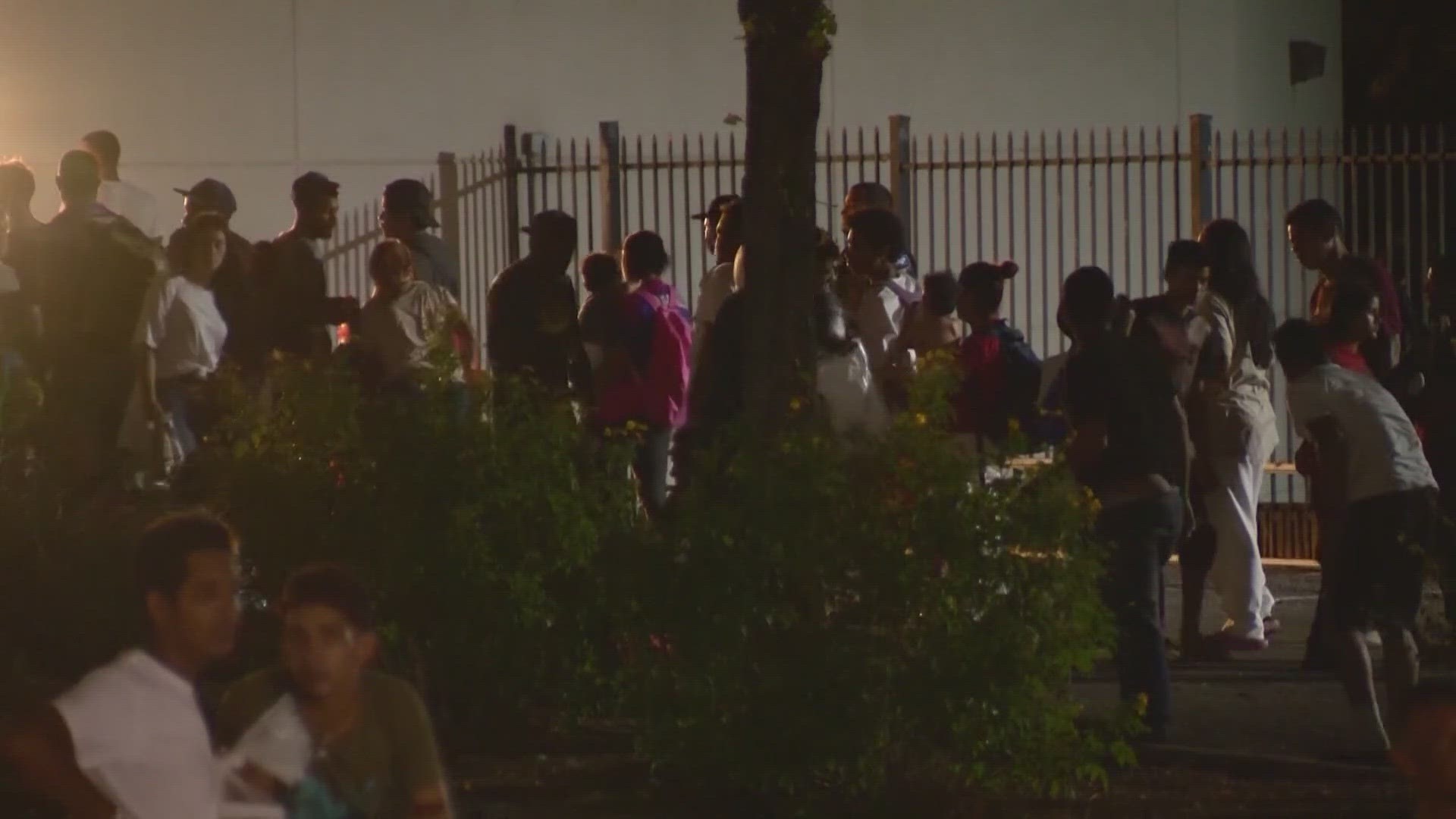SAN ANTONIO — San Antonio's Migrant Resource Center spent another night over capacity on Friday.
The facility, located at 7000 San Pedro, has the capacity to serve 700 people. On Friday, authorities said around 1,500 asylum seekers were being processed both inside and outside the building.
Many people were forced to eat and sleep in the parking lot due to the lack of space.
Questions still remain about what it would take to open a second migrant resource facility in San Antonio to alleviate the overflow. J. Antonio Fernandez, CEO of Catholic Charities, told KENS 5 on Friday afternoon that a second location depends on additional funding they have yet to receive.
Another concern is the impact of the migrant surge on the San Antonio Food Bank (SAFB).
Every day, 1,500 people at San Antonio's Migrant Resource Center are fed breakfast, lunch and dinner.
"That's about 4,500 meals to 6,000 meals a day," said SAFB President and CEO Eric Cooper.
Cooper says the extra swell of migrants crossing the border created additional demand in the food bank's kitchens.
"To keep up with that, we're adding some shifts and trying to make sure we can get the number of volunteers we need to prep and prepare the meals, as we deliver those to the center three times a day," he explained.
Now, the need for volunteers is critical.
So is the need for donations. At the top of the list are non-food items like diapers, infant formula and feminine hygiene products.
"Deodorant, shampoo and small bottles," Cooper added. "We need combs, toothbrushes, toothpaste."
Every week, the food bank feeds 105,000 people in 29 counties.
"When it comes to 1,500 to 2,000 migrants, it's not a big demand," Cooper said. "But it's a real important demand."
Financial donations go a long way, too. Just $1 pays for seven meals at the San Antonio Food Bank.
"I understand sometimes people want to help Americans first and we can restrict their donations to only do domestic work, but there are generous donors that just want to make sure that any child, no matter what their origin is, they want to make sure they're fed," Cooper explained. "We're just the stewards of their generosity."
Cooper said chefs at the San Antonio Food Bank are also providing culturally relevant meals. They use recipes similar to the migrants' countries of origin in attempts to give people a taste of home.
"When you're in that moment of despair, uncertain about what's coming next, just to be able to get a little comfort through a meal goes a long way," said Cooper. "We feel so blessed to provide it."
With San Antonio's Migrant Resource Center in operation, Cooper says the city is keeping the asylum seekers separate from other populations in need, like the homeless.
He says border towns and other communities will blend the two, which means some people may lose out on a meal if homeless shelters are full.
That problem, he says, doesn't exist in San Antonio.
To volunteer with the San Antonio Food Bank or to donate, visit SAFOODBANK.ORG. You can also call 210-337-3663.
For those interested in making a donation to the Migrant Resource Center, the City of San Antonio's Human Services Department says items can be taken to the food bank (5200 Enrique M. Carrera Pkwy.) and St. Stephen's CARE Center (2127 S. Zarzamora St.). The city and Catholic Charities ask that the public not take donations directly to the Migrant Resource Center.
>TRENDING ON KENS 5 YOUTUBE:

